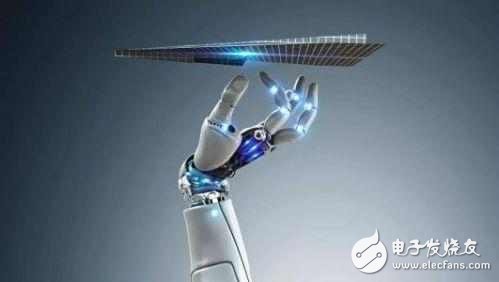The replacement of artificial intelligence by humans may be feasible on a purely technical level.
1
After AlphaGO's decisive victory, discussions about how artificial intelligence will affect human society are unprecedentedly enthusiastic. One issue that is generally anxious is how many people will lose their jobs in the machine?
But maybe things are not bad enough to that extent. To date, there have been many key factors in the discussion of “Artificial Intelligence Substituting Humans†that have not been fully considered.

2
One of them is: This is not worth it.
Human society does not apply it just because of a technology. The rapid development and large-scale application of a technology depends on whether the technology can save or replace relatively scarce production factors in society, and make full use of those relatively abundant production factors.
Therefore, although large-scale mechanized production has long been regarded as a symbol of agricultural modernization, it has not been able to promote success in densely populated Asia. In these areas, what people need is to save land rather than manpower, thus spawning innovative biotechnologies like Yuan Longping's hybrid rice that can improve land use efficiency.
For the same reason, when Amazon in the United States tried to solve the "last mile" problem with drones, there were platforms such as "flash" and "UU errands" in China, in order to more fully call loose and cheap. Labor resources to deal with the same logistics needs.
At least for now, the scientific and technological resources required for artificial intelligence technology are relatively more scarce resources than the total human labor force. Coulee once broke the news that AlphaGO played a game with Li Shishi, and the machine running cost reached 3,000 US dollars. In the meantime, a human opponent who is a little less than her may only consume a bowl of bibimbap.
Perhaps for AlphaGO, the cost of defeating the most intelligent minds of human beings is worthwhile (and don't forget how much public money AlphaGO has saved for AlphaBet). But to replace the intern in the cubicle with the same expensive cost is completely different.

3
In 1954, Walter Ruse, chairman of the Federation of Industrial Confederations and labor movement leader, came to Cleveland to visit a factory in Ford. A manager proudly showed Ruther the advanced automation machine from Ford. He told Ruther: "How do you plan to collect union fees for these machines?"
Ruther’s response was: “How are you going to let them buy a car?â€
This story contains a very crucial question: If humans have no income, who can the products produced by the machine be sold to?
Bill Gates made a very bold proposal some time ago to tax robots. Use the “robot tax†collected to subsidize the unemployed or train them so that they can find other jobs. But even if you ignore the criticism of technical optimists, the idea of ​​"robot tax" sounds weird and unacceptable.
Another even more daring proposal is for the state to unconditionally distribute basic income to all citizens (UncondiTIonal Basic Income). In Switzerland in 2016, a referendum was initiated for a UBI proposal. This proposal believes that with the development of automation technology, job opportunities will continue to decrease, so it is required for all Swiss citizens – whether they work or not – A monthly income of 2,600 francs (about 18,000 yuan) was issued.
The proposal failed to pass the resolution, and 78% of the voters finally voted against it. Many people are worried that this proposal will lead to an increase in the number of people who are unwilling to work and become a factor of social instability.
It seems that in the short term, human society has not been able to agree on a compensatory plan for unemployment due to AI.
4
If companies are willing to promote machinework, they may provoke collective action by human workers.
Laborers have a long history of resistance to alternative machine technology, and the most iconic resistance activities took place during the Industrial Revolution. Automatic loom can be operated by cheap ordinary workers, which has led to the unemployment of many traditional craftsmen. In the UK, some unemployed weavers joined forces to fight against the extreme forms of machines and factories. Many of them claimed to be followers of King Lud, so the movement was also called by historians. Lude Movement."
In 2013, when Taiwan’s “Highway Bureau†planned to completely replace nearly 1,000 highway toll collectors in Taiwan with the ETC automatic toll collection system at the end of the year, it triggered a protest from the toll collectors. In the process, a 40-year-old employee of Zhutian Toll Station committed suicide by burning charcoal in his car. The extreme struggle of the toll collector is like the modern version of the "Loude Movement." The difference is that more than 200 years ago, the “Lud King†followers in the UK destroyed automated machines to replace textile workers. The modern Lutherans after 200 years chose to destroy themselves in front of the machine.
Affected by this, some Taiwanese have launched an initiative to “refuse to run ETC toll cards†on the Internet, hoping to take action to delay the automation of highway toll collection.
Collective resistance will definitely increase the economic cost of replacing human labor with machines, and even lead to social unrest, resulting in social and political costs. For social administrators, these costs must be taken into account.
5
In the past, the “Ludeists†had a bad reputation, and they had long been influenced by public opinion as a group of extremely old-fashioned people who could not adapt to social progress. The important reason behind this is that public opinion is always in the hands of mental workers, white-collar workers, and intellectuals.
More than 200 years ago, when the automatic loom turned the craftsmen who mastered the superb skills into the blue-collar workers beside the assembly line, the intellectuals did not give Ned Luddy much attention and sympathy.
As a result, they suddenly discovered that the new era of "Ned Lud" is their own.
When Facebook began to reduce the use of manual editing in News Feed products, and more use of machines for news screening and recommendation, it has aroused a great rebound in the press. Such a scenario is also happening in China. The rumors that "Sohu removed the content department and no more manual editing" have also caused a public opinion storm on the Internet.
The high-speed rise of the "machine recommendation" information client represented by today's headlines has already made many media people feel threatened. Now, when the portal is beginning to turn to the trend of “smart distribution,†an intellectual-style Ludd movement—not through violence, but through criticism of public opinion—is justified. In this discussion of whether the machine can replace the editor, journalists certainly have many resounding and correct opinions, but fundamentally, this debate still contains the anxiety of human workers on their status.
In 2016, the United States Information Technology and Innovation Association (ITIF) awarded the annual "Lud Prize" to Musk, Bill Gates and Hawking, as they all publicly expressed their concerns about artificial intelligence.
This is an important sign: unlike in the past, the future Lutheists may include both those who have practical powers, and the large number of middle-class and white-collar workers who can influence the mainstream public opinion in society - the Lutheists Our claims may gain broad support in the public opinion that has not been seen in the past.

6
The replacement of artificial intelligence by humans may be feasible on a purely technical level.
But nowadays, in the face of the application of artificial intelligence, human society is still far from being prepared in terms of economy, politics and concept.
Yonghao Wire Company is committed to providing high quality electrical products, taking YC02 photovoltaic cable connectors as an example, whose superior performance makes them a reliable choice. We meet our customers' needs with innovative technology and superior quality, providing reliable power connectivity solutions for the renewable energy industry.
Applicable scenarios include photovoltaic power plants, solar power generation systems, outdoor photovoltaic equipment, etc., to provide reliable electrical connections for these environments to ensure the efficient operation of solar power generation systems.
YC02 photovoltaic cable connector has the following advantages:
High reliability: The YC02 connector design is carefully optimized to ensure a stable and reliable electrical connection in the photovoltaic system, reducing the failure rate.
Strong water resistance: with excellent waterproof performance, adapt to outdoor, bad weather and other complex environments, to ensure long-term stable operation of the connector.
Corrosion resistance: Strong corrosion resistance, can maintain the stability of the connector in harsh weather conditions, extend the service life.
Anti-ultraviolet: It has anti-ultraviolet characteristics and is suitable for outdoor photovoltaic power plants and other scenes that need to be exposed to sunlight for a long time.
High temperature resistance: YC02 connectors maintain stable performance in high temperature environments and are suitable for devices such as photovoltaic battery modules and inverters.
Applicable scenarios include photovoltaic power plants, solar power generation systems, outdoor photovoltaic equipment, etc., to provide reliable electrical connections for these environments to ensure the efficient operation of solar power generation systems.
solar connect, cable connector, connector terminal,pv connector, dc solar cable connector
Suzhou Yonghao Cable Co.,Ltd. , https://www.yonghaocable.com